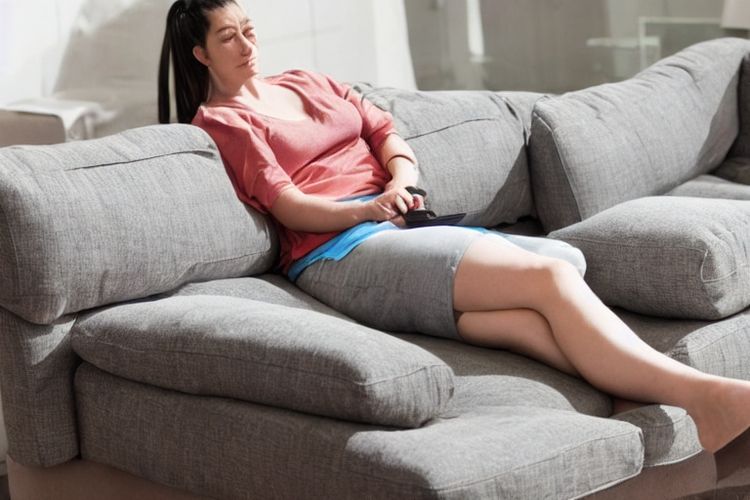Breaking Down Sedentary Living: Understanding the Alarming Consequences of a Desk-bound Existence

In today’s modern society, it is not uncommon to find individuals leading sedentary lifestyles. With the rise of technology and desk-bound jobs, many people spend the majority of their day sitting in front of a computer or hunched over a desk. While the convenience of technology has undoubtedly improved our lives in numerous ways, its side effects on our health are a cause for concern.
The term sedentary living refers to a lifestyle characterized by minimal physical activity and prolonged sitting or lying down. It is estimated that the average adult spends about 6-8 hours sitting each day, and this number is even higher for those working office jobs. Unfortunately, this sedentary behavior can have alarming consequences on our physical and mental well-being.
One of the most immediate and noticeable effects of a desk-bound existence is weight gain. When we sit for long periods, our metabolism slows down significantly, leading to the accumulation of fat. Additionally, sitting for extended periods reduces the number of calories burned compared to engaging in physical tasks. This combination of reduced metabolic activity and minimal calorie expenditure can quickly lead to weight gain and obesity.
Furthermore, sedentary living has been linked to an increased risk of developing chronic conditions such as heart disease, diabetes, and certain types of cancer. Prolonged sitting has been found to negatively impact insulin sensitivity, blood pressure, and blood sugar levels, all of which are risk factors for these diseases. In fact, studies have shown that individuals with sedentary jobs have a higher risk of cardiovascular problems and premature death than those with active professions.
Mental health is another area affected by a sedentary lifestyle. Researchers have found a strong correlation between prolonged sitting and poor mental health outcomes such as anxiety and depression. The lack of physical activity not only affects our physical health but also deprives us of the mood-boosting benefits that exercise provides. Regular exercise has been proven to release endorphins, reduce stress, and improve cognitive function. Without this vital activity, our mental well-being can suffer.
Breaking out of a sedentary lifestyle is crucial for our overall health and well-being. Fortunately, there are simple steps we can take to incorporate more movement into our daily routine. Regular breaks from sitting, even as short as two minutes every hour, can significantly improve our health. Using standing desks or adjustable workstations can also reduce sedentary time and encourage more movement throughout the day.
In addition to incorporating regular breaks, it is essential to engage in moderate to vigorous physical activity for at least 150 minutes per week. This can include activities such as walking, running, cycling, or participating in a fitness class. Making exercise a priority and integrating it into our lifestyle can help counteract the harmful effects of prolonged sitting.
Moreover, finding ways to stay active during leisure time is equally important. Engaging in hobbies such as gardening, playing a sport, or taking part in outdoor activities can contribute to a more active lifestyle. Encouraging social activities that involve movement, such as team sports or group exercise classes, is a great way to remain active while enjoying the company of others.
Breaking down sedentary living requires a collective effort from individuals, employers, and society as a whole. Employers can facilitate active workplaces by implementing wellness programs, providing standing desks or active workstations, and promoting physical activity during breaks. Society can create environments that encourage active transportation, such as cycling or walking to work, and promote the availability of parks and green spaces for recreational activities.
Understanding the alarming consequences of a desk-bound existence is essential for our individual and collective well-being. By prioritizing physical activity and incorporating movement into our daily routine, we can break free from sedentary living and improve our health both physically and mentally. It’s time to stand up and take action for a healthier future.



